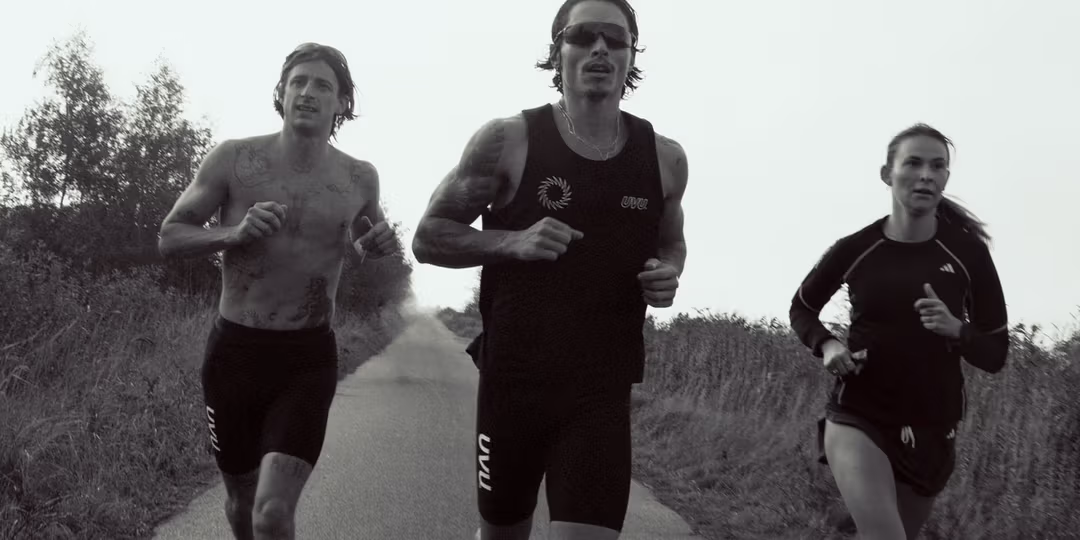
The Changing Face of the UK Festival Scene
The changing face of the UK festival scene, and where brand collaborations can fit in.
On 8th August this year, Houghton Festival in Norfolk was cancelled due to extreme weather conditions, including heavy rain and 60mph winds. The cancellation caused outcry from ticket-holders, but ultimately the organisers were proved right, with the weather proving to be even worse than prior forecasts predicted. However, despite how justified Houghton’s cancellation evidently was, it still felt like a watershed moment for UK festival culture. In just its third year running, Houghton, run by Fabric’s resident DJ Craig Richards, had already become perhaps the UK’s most exciting new electronic music festivals, described as ‘a perfect storm of excellent music, breathtaking surroundings and minimal phone signal’ by Resident Advisor. The festival’s abrupt annulment therefore left a gaping hole in the festival calendar, laying bare the precarious position which UK festival culture currently finds itself in.
In terms of weekend festivals in the UK sporting similarly underground electronic music line-ups, the market suddenly seemed sparse. In 2018, Farr Festival, a boutique Hertfordshire festival with a world-class line-up featuring Dixon, Hunee and Mount Kimbie announced that it would not be returning for 2019, with the organisers deciding ‘to re-evaluate our offering and reflect on what we have created’. Similarly, Bestival, the winner of ‘Best Major Festival’ in the UK in 2015, went into administration in 2018, with no sign of returning. Furthermore, Cambridgeshire’s popular Secret Garden Party ‘bowed out in swaggering fashion’ in 2017. These major absences meant that most electronic music festivals in the UK in 2019, such as Creamfields, MADE Festival and Boomtown were more focused on EDM, drum & bass and commercial electronic music than underground house and techno. There are obviously some exceptions to this, with the most established names in the UK festival field, such as Glastonbury and Reading & Leeds, having hugely successful 2019 instalments. However, both of these events are often not the first choice in the 18-25 demographic. The average Glastonbury reveller in 2018 was 39-years-old and married, while Reading & Leeds is often viewed as a ‘post-GCSE blowout’ for schoolchildren in their late teenage years. The university student or recent graduate in the 18-25 bracket is likely to look elsewhere, and with the UK electronic music festival scene failing to provide, many are turning to Europe.
A survey of 18-25 year olds conducted by KRPT to analyse what this demographic looked for in a festival found that the most important feature for young adults was the quality of the line-up, followed by how much the festival’s location interested them, particularly the opportunity to interact with nature in a beautiful setting. Additionally, the ease of getting to the event, affordability, food and water provisions, make-up and size of the crowd, opportunities for other activities and stage design were the other most important draws for a festival. Interestingly, when asked whether they believed they were more likely to find these features at a UK or European festival, respondents felt they were just as likely to find them at a European festival, suggesting that the increased difficulty of getting to one was balanced out by an improved festival experience on other fronts. The increased attractiveness of European festivals is perhaps best epitomised by the growing appeal of Amsterdam’s Dekmantel Festival, which, behind Glastonbury, was the festival which respondents most wanted to go to next year. Many music journalists have noted the increasingly large British contingent at the festival year on year, which seems to be catered to by a line-up representing the UK scene. In 2018, ‘Sunday's bill charted a course through UK soundsystem culture, beginning with a dub set from the South London legend Jah Shaka and ending with nearly five hours of jungle and drum & bass’. In 2019, much of the buzz on the first night was around the b2b set by Ben UFO and Blawan, ‘two UK behemoths of clubland’, with the former also playing a closing set on Saturday night. Dekmantel also scores highly for its sustainability conscious approach, which those surveyed noted was something lacking from UK festival culture. The festival’s token system for purchasing drinks forced revellers to exchange their cups if they wanted more than one drink, with all collected plastic cups recycled at the end of the festival, and being re-used at the 2020 edition.
In addition to the appeal of Dekmantel, Croatia is a popular destination, with Dimensions and Outlook the 5th and 8th most desirable festival by KRPT respondents respectively. With both festivals moving location in the coming year, they have re-invigorated their appeal. With festival-goers ranking location as the second most important feature they look for, the chance to visit somewhere new is only like to increase the lure of the two sister events. Hideout’s founder, Mark Newton, has also suggested that many young Brits ‘don't have the funds to go to both a festival and a summer holiday so now they try to combine the two’, with European festivals offering the chance to visit an exotic destination for a fairly low price. Despite this, many UK festivals are continuing to appeal, with Houghton in Norfolk and Gottwood in Wales the joint-third most desired festival destinations, and Farr and Boomtown ranking above Outlook. Although 32% of respondents claimed that the UK festival scene was in decline, citing overly commercialised experiences, poor organisation, overzealous security, overcrowding and repetitive line-ups, 37% had faith that it was on the up. Those surveyed pointed to exciting new day festival offerings, particularly in London, as providing much needed novelty in the UK, with Junction 2 and Gala festival hosting an excellent array of underground electronic music acts, and also claimed that improvements had been made in dancers’ welfare and the accountability of security.
This leads us to question how brand presences at festivals can harness the crucial elements of the festival experience which music lovers look for when choosing between different events. Various brands have managed to tap into these factors which make festivals like Dekmantel and Junction 2 stand out in a crowded market. Below are KRPT’s four favourite festival and brand collaborations, and the reasons why they would appeal to a savvy festival-goer.
1: Nando’s x Parklife
Nando’s ‘Rule the Roost’ campaign at Parklife first appeared in 2013, and offered a unique take on the traditional sponsored stage concept. The DJ booth at the ‘Cock O’ Van’ stage sits atop a van serving Nando’s chicken. The set-up foregrounded Nando’s product, as well as creating an intimate setting where revellers had the chance to see a variety of surprise sets from major DJs. The idea combines two festival features which those surveyed praised: access to great food and interesting and innovative stage design. This meant that there was always considerable buzz around the brand presence, be it from those seeking a hearty meal or dancers looking for exclusive music performances.

2: Patta x Dekmantel
Dekmantel has a long-running collaboration with Amsterdam-based streetwear brand Patta, and releases a capsule collection each year with the brand. With British festival-goers seeking a memento of their time in Europe, the offer of an exclusive clothing item is a popular one, with the collapsible Adventure Flap Cap the 2019 edition’s must-have accessory. The durability of Patta’s clothing means that their brand, as well as Dekmantel’s, will live long in the memory of any festival goers lucky enough to get their hands on the merchandise.

3: KIND x Camp Bestival
With many of those surveyed claiming they welcomed festival’s offering other interesting experiential activities outside of their main line-up, KIND’s ‘kinetic dance floor’ stood out at 2019 edition of Camp Bestival. The stage hosted fitness sessions, the kinetic energy from which was harnessed into power that could be used to charge mobile phones and other electronic devices. The interesting stage design, focus on sustainable energy, and outside-the-box thinking made it an inventive and effective festival brand activation.

4: ONYX x Junction 2
ONYX Ibiza’s partnership with one of London’s most exciting day festivals is a smart collaboration in itself, but more impressive was the introduction of interactive activities to go alongside their sponsored stage. Providing giant synthesisers and drum machines, festival-goers were invited to make their own music, providing a chance to take a break from dancing while still remaining on-brand for the predominantly techno festival, and providing a fun and memorable experience to festival-goers.


.avif)


